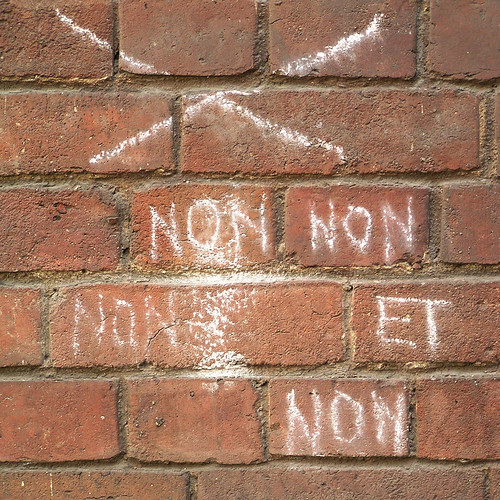
I get a lot of questions on how to succeed in international development. How to make an internship turn into a job, how to use a bad job to get a good job. I give the same answer, every single time. Be easy. More than anything else – more than being skilled, more than being high performing, more even than brilliant – be easy.
This is a small world. You see the same people over and over again over the course of years. Hierarchies turn sideways and upside down in the space of months – every time a new grant gets awarded. My friend Simon has been my boss, my HQ backstop, my subordinate, and my colleague working at another NGO. If you screw up your relationships with colleagues, you don’t get to leave your job and never think of them again. They’ll pop up in the future – maybe working for the donor that funds you, maybe managing you.
You will work with a limited pool of people. If it’s a good project, you have a big national staff and a small expat staff. Even the largest project is smaller than your average corporation. You need to be able to manage the complexity of the national-expatriate balance. If you can’t manage that, you can’t do your job – no matter what else you have going for you.
That means that when people are hiring, the thought at the front of their minds is, “Will this person be easy to work with?” Because it doesn’t matter how good you are if you’re hard to work with. I remember recommending a colleague for promotion and getting the rapid, muttered response: “We can’t move him up. He doesn’t play well with others.”
I have burned my share of bridges. You can’t be easy all the time. I have ex-colleagues that hate me, I am sure. At least one of them comments on this blog to express his disdain for me. But I do my best to be easy.
Four ways to be easy:
- When given a task to do, don’t complain to your boss about it. Just smiled and go do it, even if it’s awful.
- You can complain to your colleagues a little, but not all the time. You’re aiming for “this sucks but I can handle it” not “this sucks and I’m miserable.”
- This part is kind of awful: you can complain to your expat friends a little, but not all the time. Because very often your friends are the ones who tell you about job openings and float your resume around. They’re not going to do that if they think you’re whiny or bad at your job. (Though, honestly, it occurs to me that if you want to complain all the time you probably need a new job better suited to your skills.)
- It’s inevitable that your personal and work life will get mixed up, because living overseas does that. Keep them as separate as you can anyway.
__________________________________
Chosen because I was trying to be a little edgy with the word “Easy,” not over the top.





